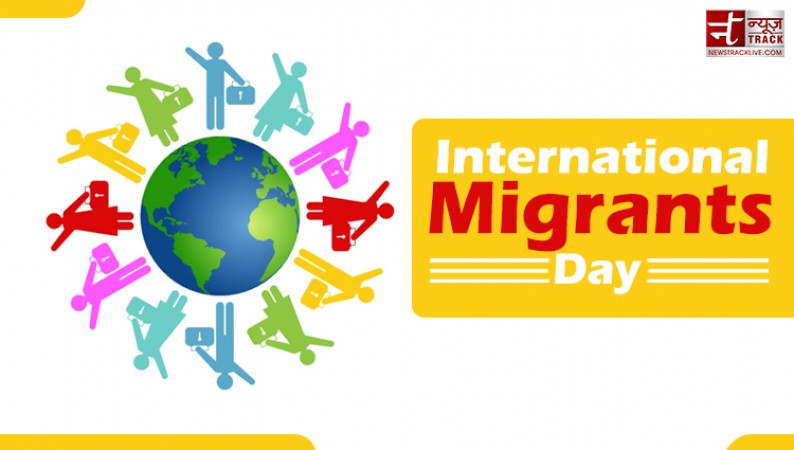
International Migrants Day, 18 December 2022 falls 71 years after the Brussels conference that led to the establishment of the organization that, in 1989, was renamed the International Organization for Migration.
The mobility of people continues to be influenced by a wide range of circumstances. Due to the increased severity and frequency of disasters, as well as the economic difficulties, extreme poverty, and/or armed war, these movements are either voluntary or forced. In 2020, there were about 281 million migrants from other countries of the world's population.
All of these factors will have a substantial impact on the nature and scope of migration in the future, as well as the strategies and policies that nations must establish to maximise the benefits of migration while ensuring the protection of migrants' basic human rights.
To fill positions that cannot be outsourced and cannot be filled by local workers who are prepared to accept them at going rates, many advanced and dynamic economies need migrant workers. This rising need is also driven by population ageing, which creates a worker-to-dependent ratio deficit. Younger generations are also less likely to accept low-paying, physically demanding employment as they grow more educated.
Low-skilled employees in advanced countries, many of whom are migrants who arrived in earlier waves, may see a decrease in income or an increase in unemployment as a result of migration. However, rather than replacing domestic workers' abilities, most migrants augment them. Migrants free up citizens to work in other, more lucrative jobs by completing chores that would otherwise be left undone or cost more. Additionally, they continue to conduct profitable economic operations that would otherwise be outsourced. Migrants contribute to economic growth in their host countries by increasing the labour force, the consumer base, and the entrepreneur pool.
Greater poverty at the source does not always result in greater migration. The poorest individuals typically lack the means to cover the expenses and hazards associated with international migration. Most international migrants come from middle-class families. However, when migrants settle down overseas, they encourage friends and family to do the same, which reduces the costs and hazards of migration and opens the door for poorer people to join the stream, though not always the poorest. The greatest opportunity to lessen the depth and severity of poverty in communities of origin exists with low-skilled migration.
There is growing evidence that migration abroad generally benefits both the nations of origin and the countries of destination. For underdeveloped nations in particular, its potential advantages outweigh those of increased global trade freedom.